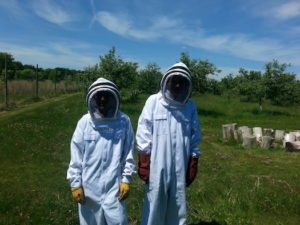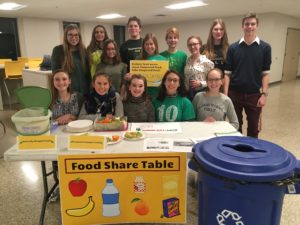
YES Mission:
Empowering youth to create solutions to today’s ecological challenges through hands-on action projects
YES Vision:
The YES program is a highly successful model for both youth engagement and social change, empowering youth to drive the vision for YES towards achieving sustainable best practices in their community.
Executive Summary:
YES is a unique youth program that develops youth leaders while inspiring widespread adoption of renewable energy technologies, waste, and energy conservation best practices, local foods, habitat restorations, and water quality and conservation improvement projects. In addition, students are gaining leadership and workforce skills such as problem solving, communication, teamwork, innovation, and project management. In 2007, Prairie Woods Environmental Learning Center (PWELC) partnered with Southwest Initiative Foundation (SWIF) to develop and implement Youth Energy Summit (YES!) as a program in response to emerging issues and opportunities around renewable energy, climate change, energy efficiency, and conservation. Today, as Youth Eco Solutions, YES seeks to be part of the solution to today’s ecological challenges through hands-on action projects.
How did YES begin?
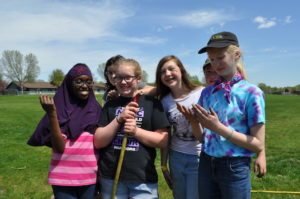 The first YES season was 2007-2008, made possible by a partnership between Prairie Woods Environmental Learning Center and Southwest Initiative Foundation. The expansion to double the size of the program for the 2009-2010 season, in collaboration with Prairie Ecology Bus Center, was funded in part by the Minnesota Renewable Energy Marketplace: An Alliance for Talent Development. In 2011, with support from the Environment and Natural Resources Trust Fund (ENRTF), YES expanded into Central MN with an addition of 10 teams. In 2014, with additional support from ENRTF, YES expanded into the Northeast by partnering with Laurentian Environmental Learning Center and into Southern MN with a partnership with Ney Nature Center. Throughout the history of YES, PWELC has been the founding force of the program. With continued support from the ENRTF and numerous others, YES is able to reach youth all across Minnesota. The original acronym definition for YES was Youth Energy Summit. To reflect the broad scope of projects that students are now completing, our name was changed to Youth Eco Solutions.
The first YES season was 2007-2008, made possible by a partnership between Prairie Woods Environmental Learning Center and Southwest Initiative Foundation. The expansion to double the size of the program for the 2009-2010 season, in collaboration with Prairie Ecology Bus Center, was funded in part by the Minnesota Renewable Energy Marketplace: An Alliance for Talent Development. In 2011, with support from the Environment and Natural Resources Trust Fund (ENRTF), YES expanded into Central MN with an addition of 10 teams. In 2014, with additional support from ENRTF, YES expanded into the Northeast by partnering with Laurentian Environmental Learning Center and into Southern MN with a partnership with Ney Nature Center. Throughout the history of YES, PWELC has been the founding force of the program. With continued support from the ENRTF and numerous others, YES is able to reach youth all across Minnesota. The original acronym definition for YES was Youth Energy Summit. To reflect the broad scope of projects that students are now completing, our name was changed to Youth Eco Solutions.
Learning by Doing
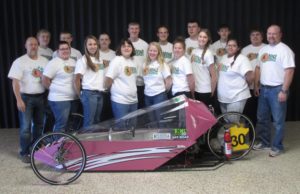 YES provides a unique opportunity for students to learn about clean energy, waste reduction, local foods, habitat restoration, and water quality issues and opportunities by working on and completing hands-on projects. One student commented, “I remember when I was little and the YES team came into my classroom and told us about the projects they do. I wanted to be on the YES team when I got bigger because I loved the hands-on learning about something I cared about, our environment.” The program explores how science, technology, engineering and math are applied in real life and helps them discover career opportunities.
YES provides a unique opportunity for students to learn about clean energy, waste reduction, local foods, habitat restoration, and water quality issues and opportunities by working on and completing hands-on projects. One student commented, “I remember when I was little and the YES team came into my classroom and told us about the projects they do. I wanted to be on the YES team when I got bigger because I loved the hands-on learning about something I cared about, our environment.” The program explores how science, technology, engineering and math are applied in real life and helps them discover career opportunities.
Participating YES teams of students from grades 6-12 are guided by adult coaches. Throughout the year, YES Director and Team Manager work intensively with teams to evaluate community needs, create action plans, and identify and involve community partners. School administrators, teachers, businesses and community members play a key role by working directly with the students or providing education and funding to help them achieve their project goals.
Through YES, students are learning by doing—building solar panels, doing energy audits, monitoring rivers and lakes for aquatic invasive species and water quality, designing and building compost bins and small wind turbines, growing local food for their cafeterias and more! Teams have reported inspiring results through their eco action projects, such as:
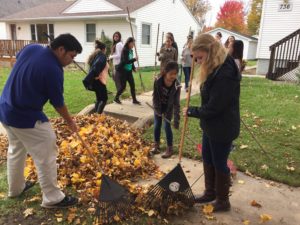
- Raising $45,000 for energy efficiency improvements to a community theater
- Reducing school electricity costs by $5,000 annually
- Reducing cafeteria food waste by over 50%
- Diverting 125,000 tons of organic waste away from the landfill and to composting facility
- Hosting community events to raise awareness of climate change, water quality challenges and other relevant eco topics
- Installing a solar PV system
- Operating a passive solar greenhouse, growing and harvesting food for school lunch
- Creating a super-mileage vehicle that achieves 425 miles per gallon
- Educating over 13,000 students and 8,000 community members annually about ways to save energy, reduce waste, and conserve water in their homes
- And more!
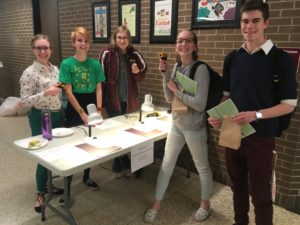
The ‘learning by doing’ model also equips students with the knowledge and confidence to share what they’ve learned with their peers and community members, impacting an additional 365,093 students and community members. Students are the impetus for catalytic change in these communities, changing the way communities use energy, consider buying choices, adopt renewable technologies and view their youth.
Collaboration
YES operates in collaboration with Prairie Woods Environmental Learning Center and Ney Nature Center. Major support for YES! comes from the Minnesota Environment and Natural Resources Trust Fund (ENRTF) and the National Science Foundation Grant 2147839 with UMN Institute on the Environment. Thank you!
In addition to the support of program partners and dedicated YES staff, teams are offered educational events, activities, resources, starter funding, competitive grants, connections to energy industry representatives, and access to a growing network of YES students and supporters. Several other organizations have helped leverage resources so that teams have access to state, regional and local support for their work.
In your opinion, how important is it that programs
like YES are available to students? Why?
“I think it is very important. Because so many people do care
about environmental issues, but often times they don’t have
the outlet or don’t know the resources available. If they know
that there is something like the YES club available
it gives them the outlet to make a positive impact.”
– 2022-23 Graduating Senior
